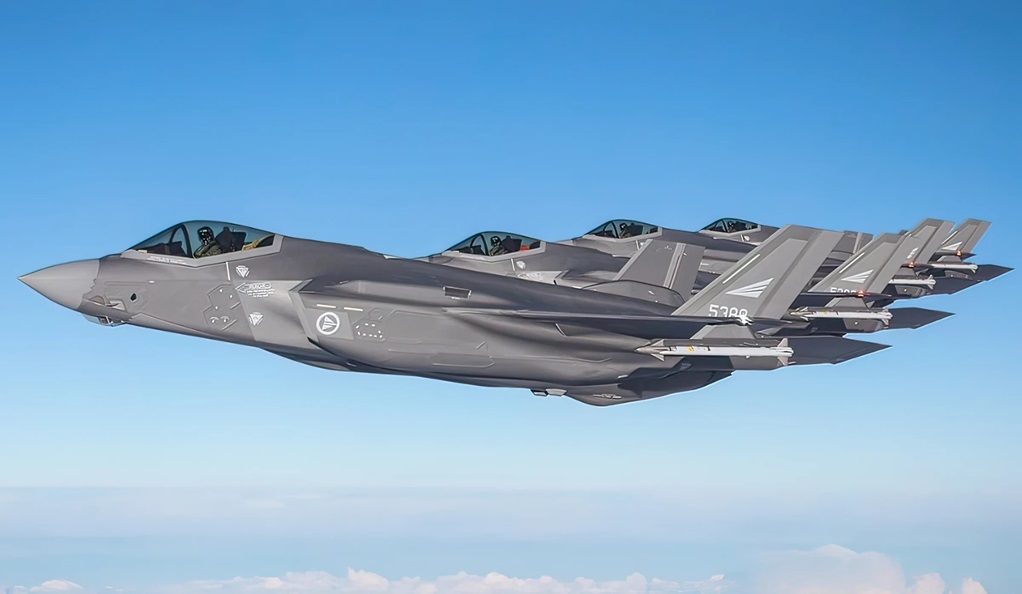Norway has become the first country to operate the Lockheed Martin F-35 fighter jet using a blend of sustainable aviation fuel. The milestone was undertaken at the RNoAF’s Ørland air base, home to the 132 Air Wing’s two F-35A squadrons. Although a second demonstration flight was cancelled due to adverse weather, the RNoAF had successfully carried out a first test flight with a 40% blend of SAF the previous day—in this instance, using a biofuel made from waste, residues and by-products.
Norway has already achieved notable firsts within the remit of sustainable aviation fuel use, having become the first nation to impose a SAF mandate in 2020 (requiring 0.5% of all aviation fuel sold in Norway, with the notable exception of the Norwegian Armed Forces, to be advanced biofuels). In 2016, Oslo Airport became the world’s first hub to include blended SAF, while Norsk e-Fuel expects to start full-scale fuel production from Norway’s first large-scale synthetic SAF production plant in 2026. (Crucially, this ‘second-generation’ fuel technology moves beyond the HEFA-produced biofuel comprising virtually the entirety of currently commercially available sustainable fuel.).
The use of biofuel is part of what the Norwegian government describes as a “broader range of environmental initiatives,” including the testing of mobile hybrid systems with wind turbines and solar panels.
Tags: Biofuel, Blended, Norway



Recent Posts
Royal Caribbean Welcomes LNG-Fueled Star of the Seas to Its Fleet
Swire Shipping Launches ‘Voyage to Zero’ to Help Customers Cut Scope 3 Emissions Swire
Pinnacle Marine Launches B100-Powered President 100 for Biofuel Trials
Assam Puts Green Hydrogen Policy on Hold, Investors Reassess Plans
MNRE and Odisha Chart Roadmap for National Green Hydrogen Mission
Hyundai Glovis to Retrofit Seven PCTCs with Avikus AI Navigation System
Super Terminais orders three more Konecranes Gottwald ESP.10 Mobile Harbor cranes
Covestro and HGK Shipping Extend Partnership to 2040 with Focus on Wind-Assisted Vessel Retrofit